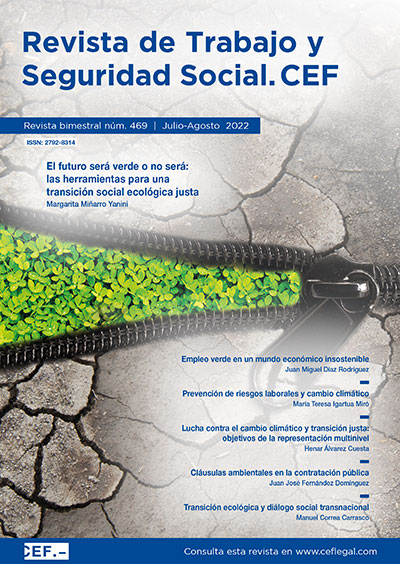Dismissal and conventionality control: does the Spanish Supreme Court "open the ban" on dissuasive severance pay?
Regarding Supreme Court Rulings 268/2022, 28 March, and 270/2022, 29 March
DOI:
https://doi.org/10.51302/rtss.2022.4671Keywords:
conventionality control, European Social Charter, unfair dismissal, dissuasive compensation, European Committee of Social Rights, collective claims procedure, Supreme CourtAbstract
Since July 1, 2021, Spain is subject to the legal-social obligations derived from the European Social Charter, as well as the collective claim procedures provided for in the 1995 protocol. Taking advantage of this ratification, which has taken decades to achieve, the General Union of Workers (UGT) has presented the first collective claim on a labor matter. The most representative Spanish union has sued Spain before the Council of Europe so that it be declared, by the European Committee of Social Rights, that the compensation provided for unfair dismissal (art. 56 Workers’ Statute) is not in accordance with article 24 of the Revised European Social Charter. If such a claim is upheld, Spanish legislation and social jurisprudence would be forced to make profound changes to the current state. However, in two very recent judgments of the Social Chamber of the Spanish Supreme Court, restrictive positions seem to continue to be maintained in relation to due diligence when carrying out this conventionality control. In this comment, both sentences are critically analyzed, showing partially different positions, however.


















